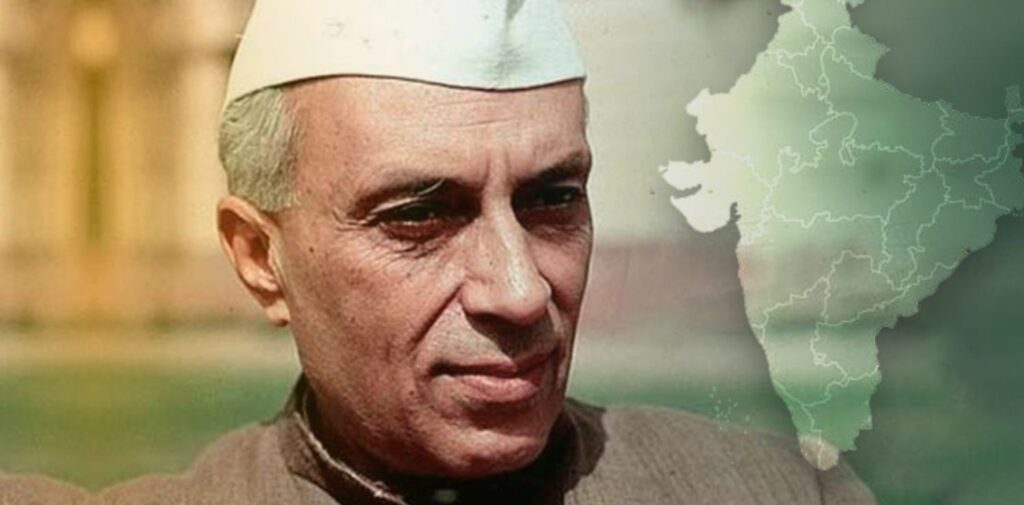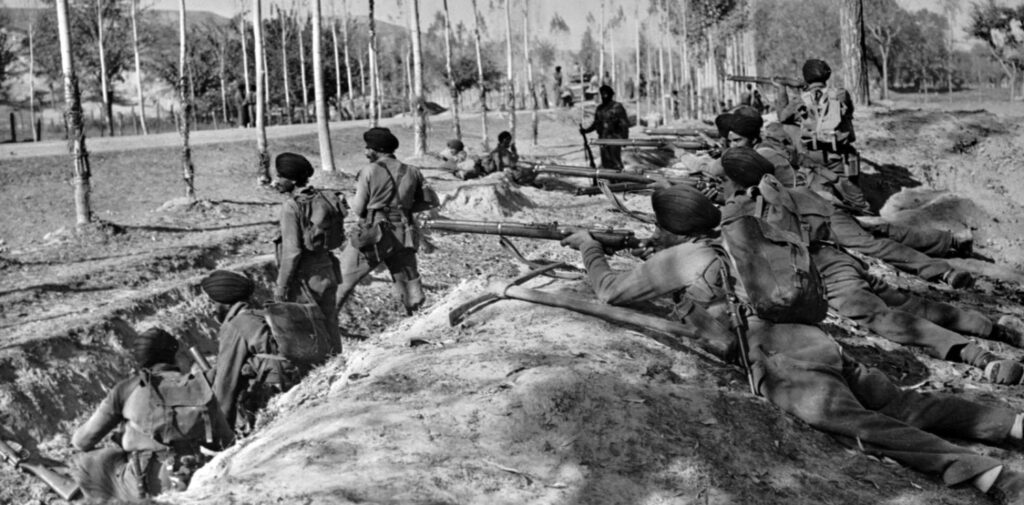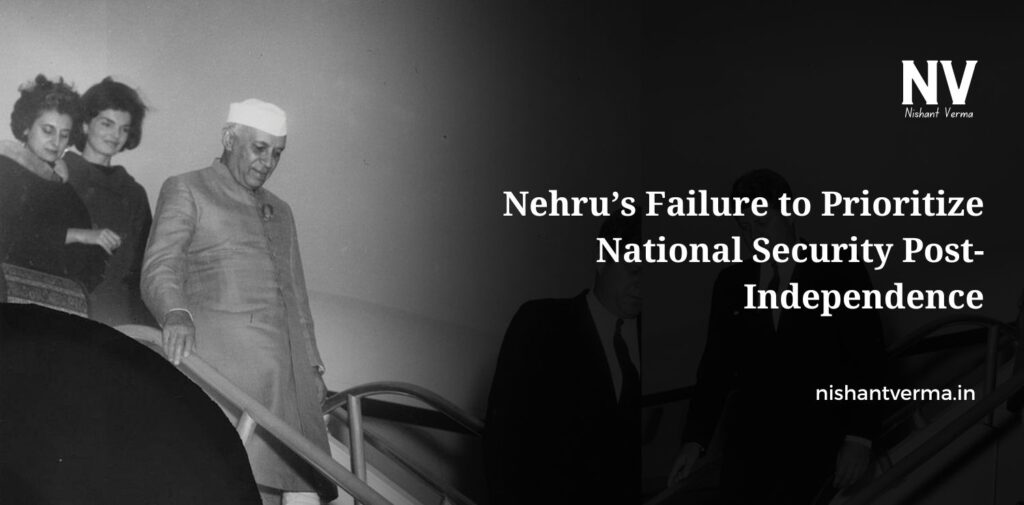When India gained independence in 1947, it was a moment of immense joy, but it also came with a heavy burden. The country was left to navigate a complex world, facing challenges of poverty, communal tensions, and, most importantly, national security. Jawaharlal Nehru, the first Prime Minister of India, played a central role in shaping the new nation’s foreign and security policies. However, despite his many achievements in nation-building, Nehru failure to prioritize national security in the years following independence is a topic that has drawn significant criticism.
Nehru was a visionary leader who sought to position India as a peaceful, democratic, and progressive country. He believed in the power of diplomacy, dialogue, and non-alignment, hoping that India would be a beacon of peace in the world. Unfortunately, this approach often led him to overlook the pressing security needs of the country. His reluctance to build a strong defense system and respond effectively to external threats contributed to some of India’s most significant security challenges, including the disastrous 1962 Sino-Indian War.
Nehru’s Vision for Peace and Diplomacy
Nehru’s vision for India was deeply rooted in the belief that peace and diplomacy were the most effective ways to resolve international conflicts. Having witnessed the devastating consequences of the two World Wars, Nehru was determined to ensure that India would never become involved in such destructive conflicts. He championed the cause of non-alignment, refusing to align India with either of the two superpowers—the United States or the Soviet Union—during the Cold War.
This approach was based on Nehru’s desire to maintain India’s independence in foreign policy, as well as his belief that India’s future lay in peaceful coexistence with its neighbors. He also wanted to promote global disarmament and avoid the militarization that had plagued much of the world. His leadership in establishing the Non-Aligned Movement (NAM) in 1961 reflected his commitment to these ideals.
While Nehru’s commitment to peace was admirable, his idealism often clouded his judgment when it came to national security. His focus on diplomacy and non-violence led him to downplay the need for a strong and capable military to defend India’s borders.

Neglecting National Security Needs
One of the most critical aspects of a newly independent country’s development is ensuring the safety and security of its people. For India, this was especially important due to its geographical location, with hostile neighbors such as China and Pakistan. However, Nehru’s government was slow to recognize the urgency of building a robust defense system.
Despite India’s massive population and resources, Nehru prioritized economic development, social reforms, and the expansion of education over military preparedness. He focused on building institutions, setting up the planning commission, and addressing the country’s widespread poverty, but he gave limited attention to strengthening the Indian military. This negligence was partly due to his belief in the moral superiority of non-violence and his assumption that India’s peaceful intentions would be enough to deter any aggression.
Nehru’s approach to national security was also affected by his idealistic view of the world. He was reluctant to increase military spending, believing that it would drain resources that could be better used for economic development. As a result, India’s defense forces were underfunded, and the country’s military preparedness remained weak for many years.
The Kashmir Conflict and the Lack of Preparedness
The Kashmir conflict, which remains one of the most contentious issues between India and Pakistan, began shortly after India’s independence. The princely state of Jammu and Kashmir, led by Maharaja Hari Singh, was given the choice to join either India or Pakistan. Facing a tribal invasion backed by Pakistan, the Maharaja chose to accede to India, leading to the first India-Pakistan war in 1947-1948.
While Nehru took immediate action to send Indian forces to Kashmir, the military response was poorly coordinated and inadequate. India was not fully prepared for the conflict, and Nehru’s leadership was criticized for being slow and indecisive. The war ended in a ceasefire brokered by the United Nations, and Kashmir was divided along the Line of Control, with Pakistan controlling part of the territory.
In the years following the conflict, Nehru continued to focus on diplomacy and pushed for a peaceful resolution to the Kashmir issue through negotiations with Pakistan. However, his refusal to strengthen India’s military in the region and his reluctance to take strong military action allowed Pakistan to maintain its hold over the territory. The unresolved Kashmir conflict continues to be a major security challenge for India to this day.

The 1962 Sino-Indian War
One of the most significant failures of Nehru’s leadership in terms of national security was his handling of the border dispute with China. In the 1950s, India and China shared a relatively cordial relationship. However, tensions began to rise over territorial disputes in the northeastern region of India, particularly in the areas of Aksai Chin and Arunachal Pradesh.
Nehru’s government, once again, underestimated the seriousness of the situation. Despite growing evidence of Chinese expansionism and border incursions, Nehru refused to take the necessary steps to strengthen India’s defenses in the region. He believed that China, as a fellow Asian country, would not pose a serious threat to India. This complacency proved disastrous when China launched a full-scale invasion of India in October 1962.
The Sino-Indian War of 1962 ended in a humiliating defeat for India. The Indian military was ill-prepared and poorly equipped to face the well-trained and well-equipped Chinese forces. India’s lack of infrastructure in the border regions further compounded the problem, and Nehru’s government struggled to mount an effective defense. The defeat in the war not only shocked the Indian public but also damaged Nehru’s political credibility.
The 1962 war exposed the fundamental flaws in Nehru’s national security strategy. His overconfidence in China’s peaceful intentions and his failure to address the military’s weaknesses contributed to India’s vulnerability. After the war, Nehru’s government was forced to make significant changes to India’s defense policy, but the damage had already been done. The war revealed the extent of India’s security lapses and left the country vulnerable to further threats.

The Legacy of Nehru’s Security Failures
Nehru’s failure to prioritize national security post-independence had long-lasting effects on India’s defense policies. In the aftermath of the Sino-Indian War, India began to take national security more seriously, and the Indian military underwent significant reforms. Nehru’s successor, Lal Bahadur Shastri, played a crucial role in strengthening India’s defense capabilities, particularly by focusing on the development of the Indian Army and Air Force.
However, the legacy of Nehru’s security failures continued to haunt India’s defense policies for decades. The country struggled with military readiness, outdated equipment, and a lack of strategic planning. The lessons learned from the 1962 war led to increased defense spending and the modernization of India’s armed forces, but the period of neglect left India vulnerable to external threats for many years.
Conclusion: Nehru Failure to Prioritize National Security
Jawaharlal Nehru was undoubtedly one of India’s greatest leaders, playing a key role in shaping the country’s democratic institutions and economic policies. However, his failure to prioritize national security in the early years of independence remains one of his most significant shortcomings. His idealistic belief in diplomacy and non-violence, while admirable, led him to underestimate the military threats facing India, particularly from Pakistan and China.
Nehru’s reluctance to invest in defense, his underestimation of India’s security challenges, and his failure to respond effectively to external threats resulted in significant setbacks for India. The 1962 Sino-Indian War, in particular, highlighted the dangers of neglecting national security. While India has made significant strides in strengthening its defense capabilities since then, the consequences of Nehru’s failure to prioritize security continue to shape the country’s defense policies to this day.
In the modern world, the lessons of Nehru’s security lapses remain relevant. For any nation, ensuring its defense and security is just as important as economic and diplomatic efforts. India’s experience underscores the need for a balanced approach to governance, where national security is given the attention it deserves alongside other priorities.




